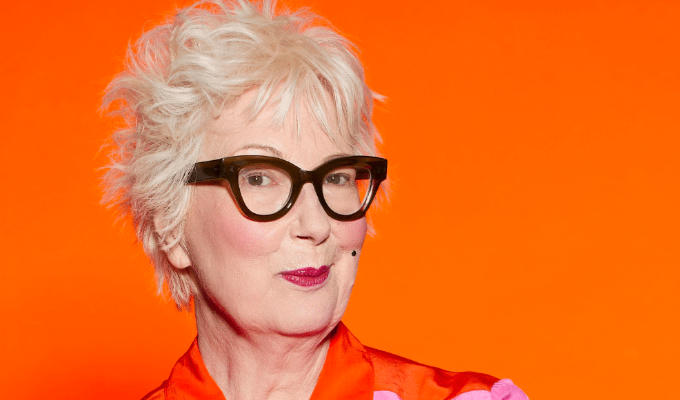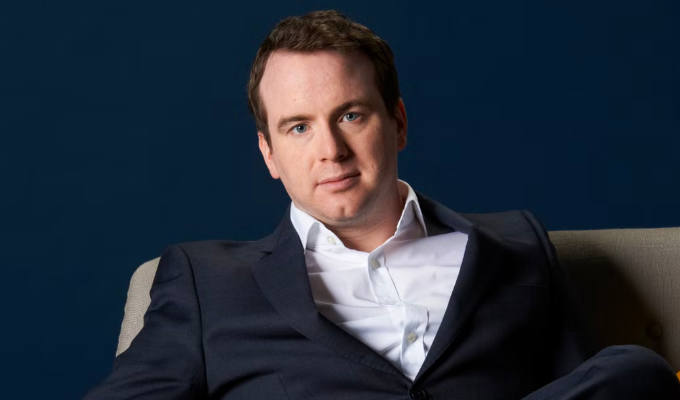
Raw comedy final 2016
Note: This review is from 2016
Melbourne comedy festival review by Steve Bennett
A traditional part of the Raw comedy national final was missing this year: the act who dies the death of a thousand silences, leaving the sizeable audience squirming with embarrassment. Instead each of the 12 newcomers acquitted themselves well, although there were the stand-outs and ‘could do better’s you’d expect in any such final.
Opening act Chris Kearey set the bar at a good level with confident, conversational set about the time he couldn’t bear the confrontation of aggressively quitting his dreary job, so instead fabricated a gap year trip to Europe The material seemed over-extended, but he landed an early applause break for an impressive act of memory, one of several he notched up over his five minutes. And the second half of the set, about friends having a baby, even though he thought it was a bad idea, showed an even sharper side of this affable 26-year-old in both writing and viewpoint. If this was the average for the show, things were going to be all right.
Naomi Higgins might have wandered in from the Class Clowns competition for school comedians, so young does she look – although there’s nothing immature about her astute observations contrasting her love of rap with her feminism. And while swaggering misogynists are easy prey, she also scratched the surface of those who call themselves ‘nice guys’ to reveal an unpleasant underbelly. A couple of premises aren’t too original, but her uncompromising attitude – slightly dark and showing a healthy disrespect for her elders – will stand her in excellent stead. One of the stronger acts on the bill, for sure.
This is nothing but prejudice, but spotting the name ‘Squirly’ on the running order suggests an act of little self-awareness, likely to be hilariously, unintentionally bad. But how wrong that impression would be. This Western Australian had never performedcomedy until his Raw heat, but he’s already got an engaging persona, fully conscious of the baggage his Strine accent and small-town upbringing carries, and able to play with those expectations. That combines with some unusual material and the odd killer line that suggest solid prospects once he’s got more experience under his belt.
James McMahon comes to the stage with arrogance, sauntering to the microphone in his own time and telling us with the aloof deadpan that defines his act that he’s got the best joke ever. Unfortunately, he doesn’t deliver on the promise. He doesn’t have material so good he can hold the audience in disdain, and never reveals that best gag, decreeing that ‘jokes are for pricks’. Instead we get some forced surrealism that the crowd didn’t climb on board with. He needs to be much better if he’s to be this cocky.
Queensland’s Emily Vascotto’s a weak link, too. She has a very actorly delivery, which exposes her tales of being a stalker as insincere. The persona is an already over-prevalent trope, too, and she doesn’t bring any intensity to the performance nor new angle to the writing. Nor is there any great payoff. That said, her daggy dancing provides a very amusing image, but she needs to relax more on stage and find her own funny.
Talking of amusing images, the ebullient nutcase Clinton Haines has that in spades with his whirlwind of pointlessly ridiculous scenes, deploying props, music and an exaggerated physicality. A couple of them don’t fire – the non-magic trick an obvious fail – but you’re never more than 20 seconds from the next squall of insanity, whether it’s an odd puppet piece or a bonkers song about Mad Max. There’s a bit of Sam Simmons in his absurdity, and heaven knows how he sustains this for more than a few minutes without any underpinning reason, but for the time he’s with us, he’s an absolute blast – securing him the runners-up slot on the podium.
David Woodhead cuts an unmistakable figure on stage, somewhere between a Yeti and a small mountain…. and he gets chuckles of disbelief when he reveals he’s only just turned 18. As well as looking way beyond his years, he has a mature confidence too, making the stage his own. From the rugged Northern Territory, he’s superficially a bit blokeish – at one point getting a fist-bump from a front-row punter for doing aa gag about testicles – but there’s more to him than that, with a quirky story about a ‘three-year-old dickhead’, alongside a couple more familiar ideas. He needs finesse, but if he’s this good at 18, he should be excellent at 28.
Another psycho woman next, but Danielle Walker, pictured, absolutely nailed it, with the more genuine persona of a sinister, unhinged undertone puncturing a thin veneer of upbeat normality. She sets out her quirkiness with an opening gag in which ‘early onset fibromyalgia’ is the punchline, then segues into bizarre stories on the border of everyday peculiar and eerily dark, occasionally punctured by a terrifying laugh. It’s a distinctive, mentally murky persona that well suits her unusual stories, without sacrificing the comedy. With such an original comedy voice, she was a favourite of both the audience and the judges, myself included, who crowned her Raw champion 2016.
An all-too-rare aboriginal voice next, as Craig Quartermaine challenged the audience to face up to uncomfortable truths about race in Australia. Although some of them were a little too uncomfortable, with his closing routine about the mass graves of indigenous people at the former jail on Rottnest Island, off Perth, leaving the room in an awkward silence of white guilt – as he offered no real joke to puncture the tension. Earlier in his short set, leading the audience into weird places paid off more, especially a section on strip clubs that ends up having a feminist message, even though that seems unlikely from the start. An interesting act, even if he hasn’t yet found the right tone for his challenging comedy.
When Michael Shafar opening with a gag about the gluten intolerant, one of the hackiest subjects of the festival, the heart sinks – though he turns it around with a fresh angle. However, he doesn’t maintain that distinctiveness throughout the slickly presented set. Some of the material about being Jewish and the childhood insults that attracted especially struggles to hit its mark. Coincidentally, though, he has a section comparing gun deaths in America to wildlife deaths in Australia that’s very similar to a Wil Anderson routine, so if he’s writing along the same lines as one of this festival’s biggest draws, perhaps he is on to something. But Shafar’s a mid-table open spot at present.
The modest delivery of Tasmania’s Maedi Prichard matched his modest material, vaguely wry observations about his relationship or the infuriating verbal tick of saying ‘like’ approached at an unusual angle but never truly paying dividends. He nudges into silly territory sometimes, but it’s all a bit too mild to pique the interest.
Finally, it was hit and miss for Adelaide’s Lewis Garnham, whose frustrations at seeing buses ‘not in service’ clearly struck a cord with this crowd. A self-styled loafer who finds a part-time arts degree something of a stretch, he goes to great lengths in a super-extended simile for how difficult he finds getting up in the morning that’s impressive more for its scope than its punchlines. However, just when you write off one of Garnham’s routines he has a tendency to drop in a little joke or aside that gives it a bit of a sparkle. Hopefully, he can overcome those slacker tendencies to find more of these.
Review date: 11 Apr 2016
Reviewed by: Steve Bennett






